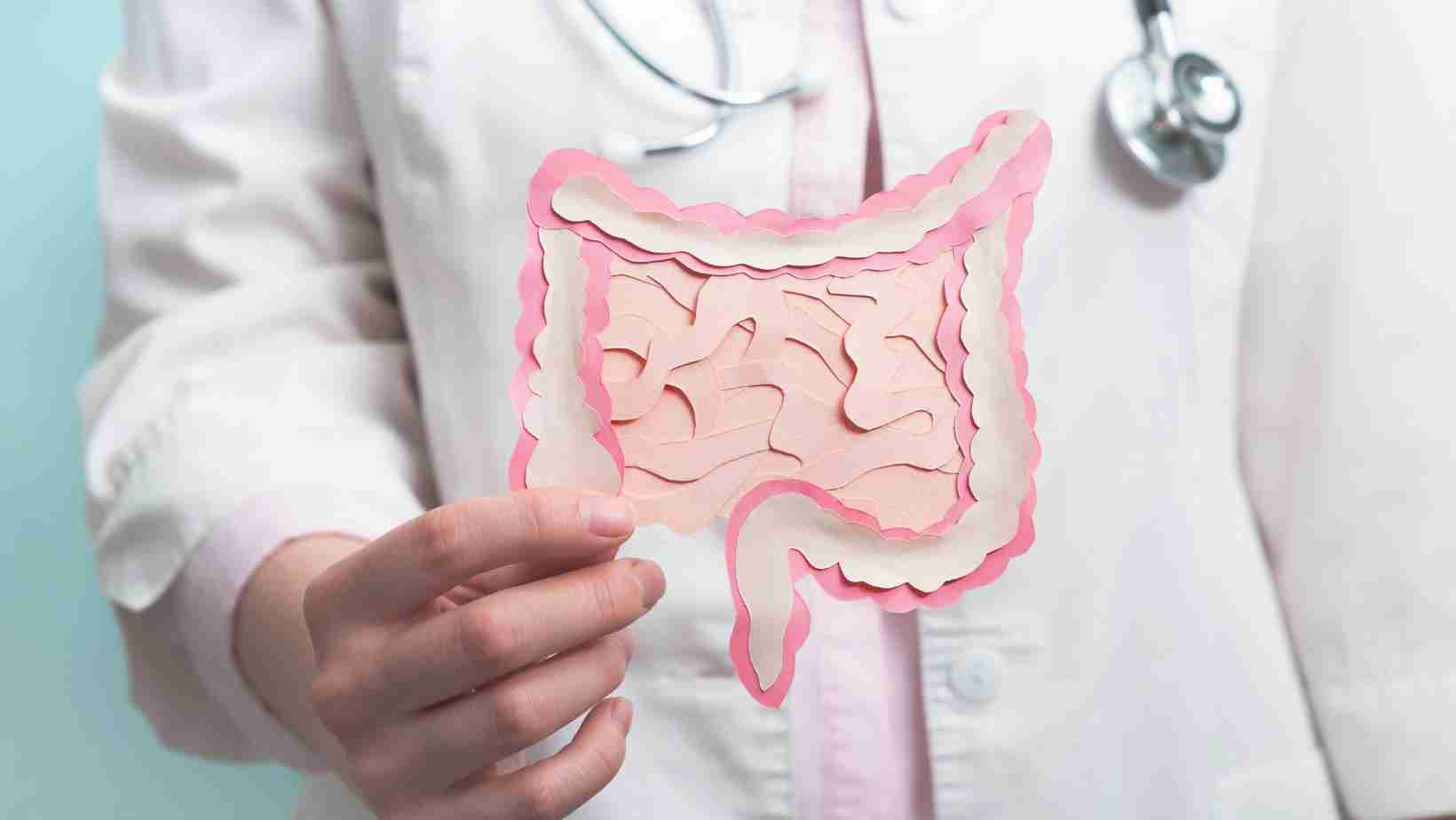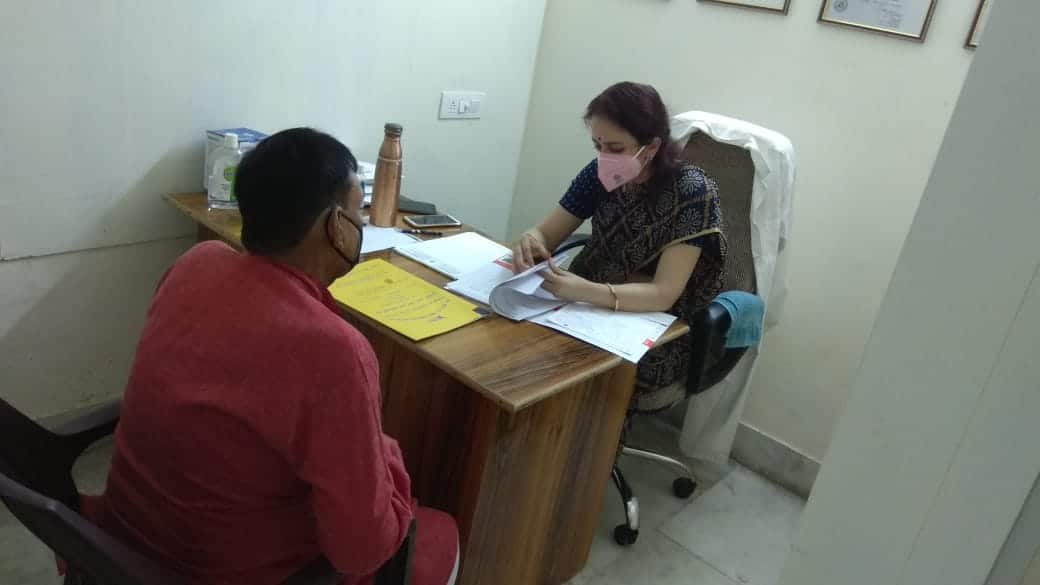
Dr Nivedita Pandey
MBBS, Diplomate of American Board of Internal Medicine (Internal Medicine), Diplomate of American Board of Internal Medicine (Gastroenterology)
Consult from Best Gastroenterology Doctor in Delhi
What is Gastroenterology?
Gastrointestinal tract disorders (GI tract) are illnesses or abnormalities of the digestive system. Functional gastrointestinal disease, which affects motility (the way food travels through the digestive tract), is the most prevalent type. Examples include irritable bowel syndrome, inflammatory bowel disease, and constipation.
Because of an issue with the gastrointestinal tract’s structure, structural GI disorders develop. They may be brought on by anomalies in the organs or changes in the gut lining. Surgical removal is sometimes necessary to treat some painful structural gastrointestinal illnesses.


Function of Gastroenterology?
Functional diseases are those in which the GI tract appears normal microscopically but is dysfunctional to movement.. These are the GI tract’s (which includes your colon and rectum) most typical conditions. Examples include diarrhoea, constipation, irritable bowel syndrome (IBS), nausea, gas, and bloating.
Your GI tract’s motility, or capacity to keep moving, can be affected by a variety of variables, including:
- consuming a fiber-poor diet.
- not working out enough.
- travelling or making other normal changes.
- consuming a lot of dairy products.
- putting off the impulse to go to the toilet, perhaps due to haemorrhoids.
- Long-term overdose of antidiarrheal drugs that reduce bowel movements.
- taking aluminium or calcium-containing antacids.
using specific medications, including antidepressants, iron supplements, and potent analgesics like opioids.
Visceral hypersensitivity is the term for heightened sensitivity in some people’s GI tract organs. Even when the organs are operating regularly, this may cause them to experience pain or discomfort.
What Constitute GI Disease Risk Factors?
Age, gender, family history, nutrition, lifestyle, and other medical conditions are the key risk factors for GI diseases. Consuming a lot of spicy food, drinking alcohol, smoking, and having a history of recurrent constipation or diarrhoea are additional risk factors.
Obesity and smoking Numerous digestive diseases can also be made worse by lifestyle factors including smoking and obesity. Obesity raises the chance of haemorrhoids and colon cancer, whereas smoking raises the risk of GERD and irritable bowel syndrome.

Dietary habits Dietary habits are another significant risk factor. A low-fibre diet can result in firm, laborious-to-pass stools. Additionally, processed meals—like instant noodles and items made with “maida”—play a significant role in GI illnesses. Drink plenty of water to aid in the passage of your bowels if you are having difficulty doing so.
Antidepressants and long-term sickness In addition to being overweight or obese, other risk factors include stress, taking certain medications (like antidepressants), having a chronic illness (like diabetes), and being overweight or obese. It’s a good idea to have your doctor check you for gastrointestinal problems if you experience any of these.
Drinking alcohol can cause a number of digestive disorders and harm to the mucosa lining the digestive track. Excessive alcohol use can cause a variety of digestive problems, including flatulence, nausea, vomiting, abdominal pain, and a feeling of fullness.
Poor Liver Health People who have cirrhosis or liver damage from hepatitis also experience nausea and loss of appetite.
How Are Gastrointestinal Risk Conditions Diagnosed?
A physical examination or a battery of tests are used to make the diagnosis of a digestive ailment. The physician will search for indications of inflammation, issues with the digestive tract’s lining, and other potential symptoms.
Abdominal discomfort and nausea are symptoms of a short-term illness such as flatulence, viral gastroenteritis, or food poisoning. The severity of several GI conditions, such as Crohn’s disease and liver cirrhosis, varies.
In order to confirm the diagnosis and find any underlying problems causing the symptoms, more extensive diagnostic testing are required for the diagnosis of a more chronic gastrointestinal disease or condition. Blood counts, liver function tests, and a test to assess the concentration of specific compounds can all be performed to assist your doctor decide which ones are most frequently utilised.
What gastrointestinal symptoms are most typical?
We’ve all had intestinal upsets at times. How then are you to distinguish between GI symptoms that are just a passing discomfort and those that are a sign of a digestive disorder? when they are severe and/or persistent.
The severity of gastrointestinal symptoms can range from extremely minor to significant. Your body may be attempting to notify you that you have a digestive disorder if you frequently experience the symptoms listed below or if they cause you a lot of pain.
Excessive Bloating & Gas
Bloating may be a symptom of a number of GI conditions, including Celiac disease or food intolerances like Irritable Bowel Syndrome (IBS).
Constipation
Constipation is defined by the National Institutes of Health (NIH) as passing hard, dry stool or having fewer than three bowel motions per week. Constipation is seen as a warning indication by many digestive illnesses, including IBS with constipation. If constipation frequently affects your life, you may have chronic constipation, a known GI issue.
Diarrhoea
A digestive condition like lactose intolerance or inflammatory bowel disease (IBD) may be indicated by chronic diarrhoea, which is defined as diarrhoea that lasts longer than a day or two.
Heartburn
Gastroesophageal Reflux Disease (GERD) may be present if you get heartburn twice or more per week. Over time, stomach acid can erode your oesophagus and cause difficulties if it is not treated.

Gastroenterology Specialist
You should consult our gastroenterologist if you have a condition that affects your small intestine, stomach, oesophagus, rectum, colon, gallbladder, pancreas, liver, or bile ducts. They have received extensive training on the normal operation of the gastrointestinal system, nutrient absorption and digestion, waste excretion, and liver function in general.
The most proficient and accomplished medical practitioners in the field of gastroenterology are currently accessible. These gastroenterology specialists possess a wealth of knowledge and expertise in the diagnosis and treatment of gastrointestinal disorders. They are highly regarded for their exceptional skills and are considered the foremost authorities in their respective areas of practice.
gastroenterology in hindi
गैस्ट्रोएंटरोलॉजी अन्नप्रणाली, पेट, छोटी आंत, बृहदान्त्र और मलाशय, अग्न्याशय, पित्ताशय, पित्त नलिकाओं और यकृत के सामान्य कार्य और रोगों का अध्ययन है। इसमें गैस्ट्रोइंटेस्टाइनल अंगों की सामान्य क्रिया (फिजियोलॉजी) की विस्तृत समझ शामिल है जिसमें पेट और आंत के माध्यम से सामग्री की गति (गतिशीलता), शरीर में पोषक तत्वों का पाचन और अवशोषण, सिस्टम से अपशिष्ट को हटाना और कार्य शामिल हैं। पाचन अंग के रूप में यकृत का. इसमें कोलन पॉलीप्स और कैंसर, हेपेटाइटिस, गैस्ट्रोएसोफेगल रिफ्लक्स (हार्टबर्न), पेप्टिक अल्सर रोग, कोलाइटिस, पित्ताशय और पित्त पथ के रोग, पोषण संबंधी समस्याएं, चिड़चिड़ा आंत्र सिंड्रोम (आईबीएस), और अग्नाशयशोथ जैसी सामान्य और महत्वपूर्ण स्थितियां शामिल हैं। संक्षेप में, पाचन अंगों की सभी सामान्य गतिविधि और बीमारी गैस्ट्रोएंटरोलॉजी के अध्ययन का हिस्सा है।

